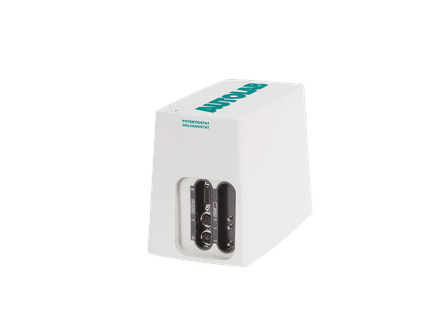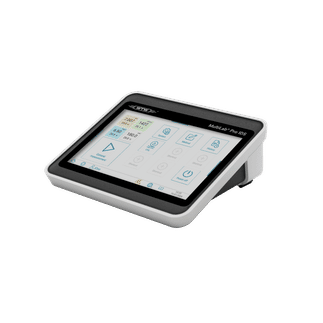To use all functions of this page, please activate cookies in your browser.
my.chemeurope.com
With an accout for my.chemeurope.com you can always see everything at a glance – and you can configure your own website and individual newsletter.
- My watch list
- My saved searches
- My saved topics
- My newsletter
NicosanNicosan (Hemoxin in US), previously Niprisan or Nix-0699, is a phytochemical (ethanol/water extract of Piper guineenses seeds, Pterocapus osum stem, Eugenia caryophyllum fruit, and Sorghum bicolor leaves) being tested for the treatment of Sickle-cell disease (SCD). Product highlightDevelopment historyIt was developed at the Nigerian National Institute for Pharmaceutical Research and Development (NIPRD) (U.S. Patent # 5,800,819 - September 1, 1998). NIPRD has already conducted Phase I, Phase IIa and IIb clinical trials and is currently conducting Phase III clinical trials in Nigeria. In August 2002, Xechem International, a New Jersey company, acquired the exclusive world-wide rights to Niprisan (later re-named Nicosan/Hemoxin). On July 6, 2006 the drug was officially launched in Nigeria, with the President of Nigeria, Olusegun Obasanjo, personally in attendance. The drug has begun with limited production, although it is expected that production will expand to meet demand. Xechem International is currently in the process of preparing an Investigational New Drug (IND) Application for Nicosan/Hemoxin for submission to the United States Food and Drug Administration (FDA) and applicable EU agencies. Nicosan/Hemoxin has received orphan drug status in the USA and Europe. Research findingsA Phase IIb trial of Nicosan was conducted at an army base hospital in Yaba, Lagos, Nigeria between 1996 and 1997. Xechem reports that "73% of the 30 patients who participated in the study experienced no crisis during the 12 month trial period and the remaining 27% experienced less frequent and less severe crises."[1] Main results Reports of two trials were found, of which only one, including 82 participants, was eligible for inclusion in this review. This Phase IIB (pivotal) trial suggests that a phytomedicine, Nicosan®, was effective in reducing episodes of SCD crisis associated with severe pain over a six-month period. Nicosan® did not appear to affect the risk of severe complications or the level of anaemia. No serious adverse effects were reported. Authors' conclusions While Nicosan®, as a phytomedicine, appeared to be safe and effective in reducing crises associated with severe pain over a six-month follow-up period of this trial, further trials are required to assess its role in the management of people with sickle cell disease. The results of Phase III, multicentre trials are awaited. http://www.cochrane.org/reviews/en/ab004448.html
External links
|
| This article is licensed under the GNU Free Documentation License. It uses material from the Wikipedia article "Nicosan". A list of authors is available in Wikipedia. |







